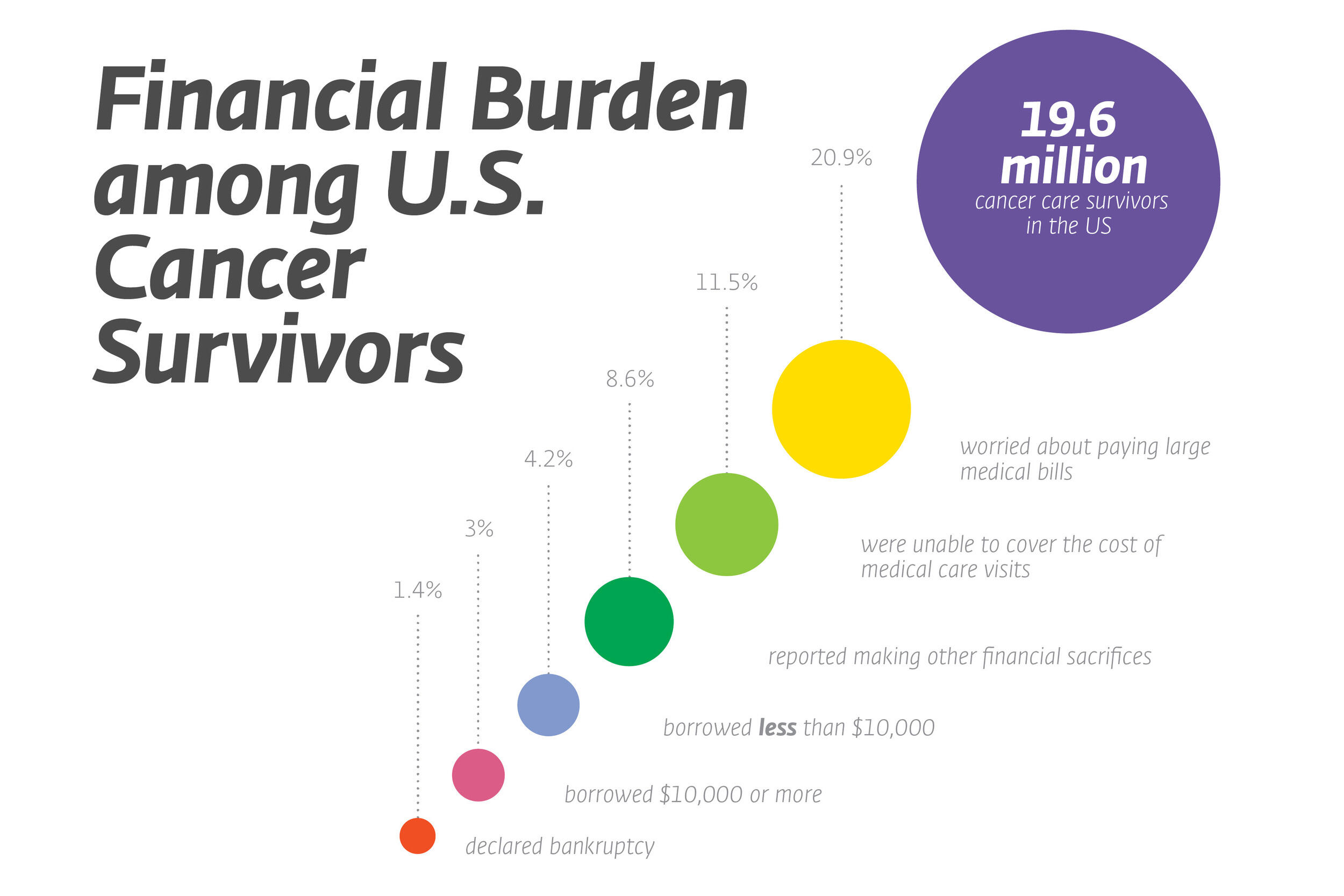
<br>Based on data collected by Hrishikesh Kale and Norman V. Carroll, Ph.D. Data was analyzed for 19.6 million cancer care survivors in the United States. These are weighed estimates based on a nationally-representative sample of 1,380 cancer survivors.
March 18, 2016
Study shows financial burdens negatively affect health and quality of life for many cancer survivors
Share this story
Cancer survivors with financial difficulties have a higher risk of depressed mood and psychological distress and are more likely to worry about cancer recurrence than survivors without heightened financial problems, according to a new Virginia Commonwealth University study.
Hrishikesh Kale, a graduate student in the VCU School of Pharmacy, spearheaded the research on the public health impact of cancer-related costs, under the direction of Norman V. Carroll, Ph.D., a professor at the School of Pharmacy. The study was published this week in the journal Cancer, a biweekly, peer-reviewed scientific journal. The study investigated the prevalence and sources of financial problems reported by a nationally representative sample of cancer survivors. Also studied was the impact of cancer-related financial burden on patients’ health-related quality of life and psychological health.
The findings that survivors with financial problems struggle more with depressed mood and psychological distress, including with concerns about the chance of cancer recurrence, suggests that it is critical for patient care to consider these components, Kale said.
“Cancer survivorship care programs can identify survivors with the greatest financial burden and focus on helping them cope with psychological stress, anxiety and depression throughout their journey with cancer,” Kale said. “We hope that oncologists, clinical pharmacists and other health care providers will increase the extent to which they consider selecting treatments that are less expensive, but similar in effectiveness, discussing treatment costs with patients and involving patients in making decisions about their therapy.”
That advice is reciprocal, Kale said.
“Cancer survivors who have serious monetary concerns can get more involved in their treatment decisions, and discuss cost of care with their health care providers,” he said.
Reducing the financial burden of cancer care requires integrated efforts.
“Our results suggest that policies and practices that minimize cancer patients’ out-of-pocket costs can improve survivors’ health-related quality of life and psychological health,” Carroll said. “Reducing the financial burden of cancer care requires integrated efforts.”
Supporting data analysis showed that as of January 2014 there were approximately 14.5 million cancer survivors in the United States. By 2024, this number is expected to reach 19 million as a result of improved patient survival rates and an aging population.
“It has been well-established in the literature that because of high out-of-pocket costs, many cancer survivors forgo or delay medical care and mental health-related services and avoid filling prescriptions. This puts their physical and mental health at risk,” Kale said. “At present, a number of academic centers and organizations, such as the National Cancer Institute, American Cancer Society and American Society of Clinical Oncology, are also conducting research that focuses on understanding the financial problems faced by cancer survivors. In addition, they are evaluating the value and cost of cancer treatments.”
Kale and Carroll are with the school’s Department of Pharmacotherapy and Outcomes Science. Carroll’s areas of focus in the School of Pharmacy include cost analysis, managed care and pharmacy economics.

Subscribe to VCU News
Subscribe to VCU News at newsletter.vcu.edu and receive a selection of stories, videos, photos, news clips and event listings in your inbox.










